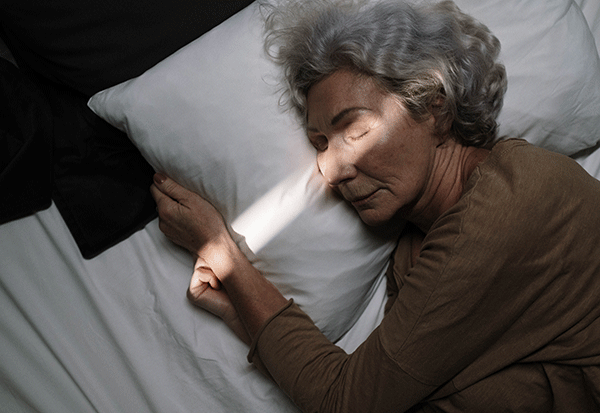Sleep is important no matter your age. It is even more essential for seniors to get a good night’s sleep to help them stay alert and healthy. However, older people tend to find it hard to sleep at night.
In fact, up to 4 in 10 Australian adults do not get adequate and quality sleep. This makes them feel tired when they wake up, as they do not get the rest their body and mind need. If you are one of them, you must have struggled a lot, and you now want to change how things are.
Fortunately, there are plenty of ways to help seniors sleep soundly at night. We’ve gathered some valuable tips for you.
Create a Regular Sleep Schedule
This may be easier said than done but setting a routine for bedtime can help you a lot. This means trying to go to bed at the same time every night and getting out of bed at about the same time in the morning. Of course, this all depends on the number of hours you aim for sleep.
Going to bed early would be the best course of action if you often wake up early. If you often wake up in the odd hours of the night, sleeping a little later might help.
You only need to strike a balance between going to bed too early and staying up too late. While it can be tempting to indulge and sleep in sometimes, it’s best to avoid this, as it will only make you feel too tired when you wake up and even ruin your sleep pattern. By training yourself to sleep and wake up at about the same time every day, you help set a healthier body clock.

Set a Downtime 45 Minutes before Bedtime
From television to smartphones, there seem to be too many distractions these days. You might find yourself trying to finish your favourite soap opera and fall asleep while watching TV. Too much screen time at night can affect your sleep.
Your eyes will need to get accustomed to the dark and take a rest from the light so you can prepare for a good night’s sleep. That’s why you should set an alarm for your downtime to prepare for bed. You may also consider wearing a comfortable sleep mask to block ambient light and help you fall asleep faster and better.
Get Some Sunshine in the Morning
The sun provides vitamin D, essential for quality sleep. People who get a little sunshine in the morning tend to sleep better at night. Waking up early should prompt you to get out of bed and open the curtains to let the sunshine in. Even better, you may try going outside for a stroll to get a bit of sunlight in your eyes.
Create a calm and relaxing bedroom space.
We all know that having a good night’s sleep is important especially for seniors. 7 to 9 hours of sleep are necessary to get them prepared for the next day but sometimes seniors have hard nights of sleep and affect their overall health on the next day. Mattresses greatly affect how their body feels and overall sleeps so pick and get the best mattresses in Australia to make it easier to get some rest.
Avoid Taking Long Naps during the Day
Older people may take at least one nap daily. However, it is often advised to take a nap no later than 4 p.m. and ensure it is just around 20 minutes long. Taking too many and too long naps in between might disrupt your sleep pattern. It will also be harder to sleep at night, forcing you to stay up late and sleep in the next day.
Wrapping It Up
While sleep patterns change with age and circumstances, getting quality sleep every night is still important, especially for older people. We hope these tips can help you get the right amount of sleep to keep you strong and healthy.




